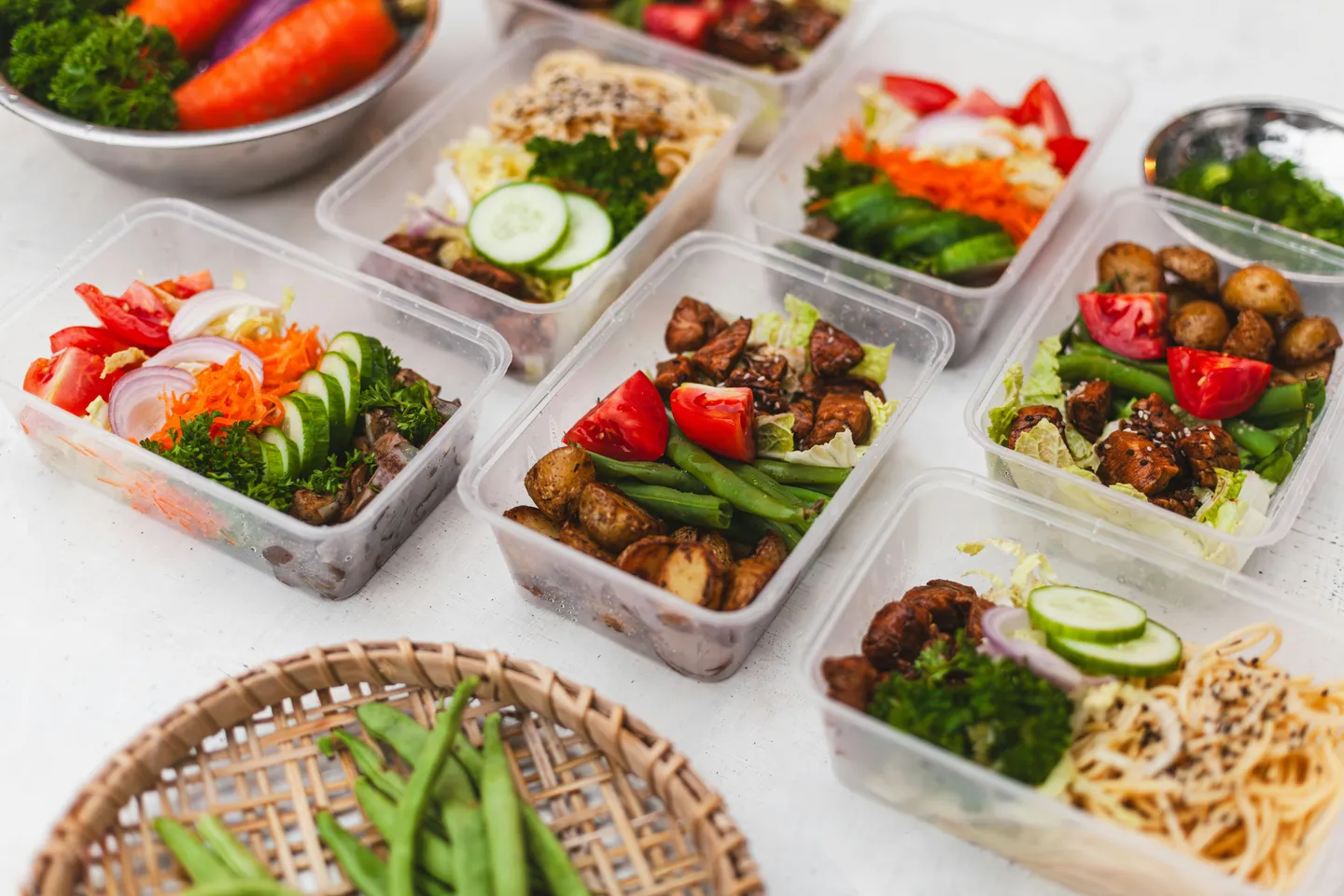
Wellbeing
|April 2, 2025
Nutrition and Mental Health: Eating Well for a Healthy Mind
There’s a growing body of research showing a strong link between nutrition and mental health. What you eat doesn’t just affect your body — it affects your brain too. From mood and energy levels to focus and stress resilience, food plays a bigger role than most of us realise.
You’ve probably heard that “you are what you eat,” but when you’re at university, food can become more about convenience than care. Between tight budgets, irregular schedules, and a lack of time or energy, it’s easy to reach for quick fixes, toast, instant noodles, takeaways. While there’s nothing wrong with the occasional shortcut, consistently eating poorly can have a real impact on how you feel, both physically and mentally.
The good news is that eating well doesn’t have to be expensive, complicated, or time-consuming. With a few simple habits and meal ideas, you can support your mental wellbeing through the food choices you make every day.
How Diet Affects Mental Health
Your brain is always working — thinking, feeling, learning, and reacting. To do this well, it needs a steady supply of nutrients, just like the rest of your body. Without them, things can start to feel off.
Here are a few key ways your diet can impact your mental wellbeing:
- Mood regulation: Nutrients like B vitamins, omega-3 fatty acids, and magnesium help regulate mood and reduce symptoms of anxiety and depression.
- Energy and concentration: Unstable blood sugar (from too much refined sugar or skipping meals) can cause dips in energy, focus, and even mood.
- Gut-brain connection: Your gut is home to millions of bacteria that influence your brain via the gut-brain axis. A healthy gut supports better emotional balance.
- Inflammation: Diets high in processed food can increase inflammation, which has been linked to mental health conditions including depression.
That doesn’t mean you need to follow a perfect plan or restrict your diet. It just means choosing foods that support your mental resilience as much as possible.
What to Eat for a Healthy Mind
A balanced diet can look different for everyone, but these core principles can help you build meals that support both your brain and body:
1. Include a Variety of Whole Foods
Aim for meals that include:
- Complex carbs like oats, brown rice, wholemeal bread or sweet potatoes — they provide slow-releasing energy.
- Protein from eggs, beans, yoghurt, chicken, tofu, or fish — essential for neurotransmitter function.
- Healthy fats like olive oil, nuts, seeds, and oily fish — important for brain health.
- Plenty of veg and fruit — packed with antioxidants, fibre, and key vitamins that support mood and cognition.
2. Stay Hydrated
Even mild dehydration can affect your mood and concentration. Aim for around six to eight glasses of water a day, more if you’re active or drink caffeine.
If you’re not keen on plain water, try herbal teas, flavoured water, or diluted juice just keep an eye on sugar content.
3. Don’t Skip Meals
Skipping meals can cause blood sugar crashes, making you feel tired, irritable, or anxious. Try to eat at regular intervals, even if it’s something simple.
A small breakfast, like porridge or a smoothie, is a great way to start the day with stable energy.
4. Watch the Caffeine and Sugar
Caffeine can increase anxiety and disturb your sleep, especially if you have it later in the day. Likewise, sugary snacks and drinks might give a temporary boost, but often lead to crashes that can affect your mood and focus.
Try switching to herbal teas or reducing caffeine gradually if you notice it affects your energy or anxiety levels.
Student-Friendly Meal Ideas
You don’t need to be a chef or have a full pantry to eat in a way that supports your mental health. Here are a few quick, budget-conscious ideas that are nutrient-dense and easy to prepare:
- Breakfast: Overnight oats with yoghurt, berries, and seeds
- Lunch: Wholemeal wrap with hummus, spinach, grated carrot, and chicken or chickpeas
- Dinner: Stir-fry with frozen veg, rice, and tofu or egg
- Snacks: Fruit and peanut butter, mixed nuts, oatcakes with cheese, Greek yoghurt with honey
- Batch cooking: Make a big pot of chilli, curry, or soup and portion it into containers for the week
Stock up on versatile basics like tinned beans, frozen vegetables, wholegrains, eggs, and spices — they can stretch across multiple meals without breaking your budget.
Food, Not Pressure
It’s important to approach food in a way that’s supportive, not stressful. Eating well is a form of self-care, not a test. You don’t need to be perfect. What matters is building habits that support how you want to feel — energised, steady, and well.
If food feels overwhelming, or if your relationship with eating is complicated, you’re not alone. Many universities have student wellbeing teams that can help, and there are national services like Student Space that offer confidential support.
Final Thoughts: Feed Your Mind as Well as Your Body
Good nutrition is one of the most practical and powerful tools you have for supporting your mental health. It doesn’t need to be expensive or complicated — just consistent, balanced, and kind.
Focus on what you can add rather than what you need to cut out. A few more vegetables here, a proper breakfast there, or a couple of home-cooked meals each week. These changes add up.
When you eat well, you don’t just feel physically better. You think more clearly, sleep more soundly, and manage stress more easily. And that can make all the difference during your time at university.
Related Articles

May 13, 2025
Creating an Integrated Routine: Balancing Study, Work, and Leisure
University life demands a lot, deadlines, part-time work, lectures, social commitments, house admin, and somewhere in the mix, sleep and self-care. Trying to juggle it all can feel like a constant struggle, especially when time never seems to be on your side.

May 4, 2025
Sleep, Screens, and Sanity: Crafting a Restful Night Routine
Let’s be honest, sleep is probably not top of your priority list right now, is it? Between lectures, deadlines, late-night chats, and the never-ending scroll on TikTok, it’s easy to let bedtime slide. After all, there’s always coffee in the morning, right?

April 15, 2025
Activity and Mood: Incorporating Exercise into Student Life
It’s no secret that exercise is good for your body, but what often gets overlooked is how powerful it can be for your mind. In this post we explore how exercise supports your mood and share some practical ways to stay active while navigating student life.
News & Hot Takes
Get weekly updates
Interested in Mind Measure?
Fill in the adjacent form and we can send you a login so you can experience mind measure yourself.
